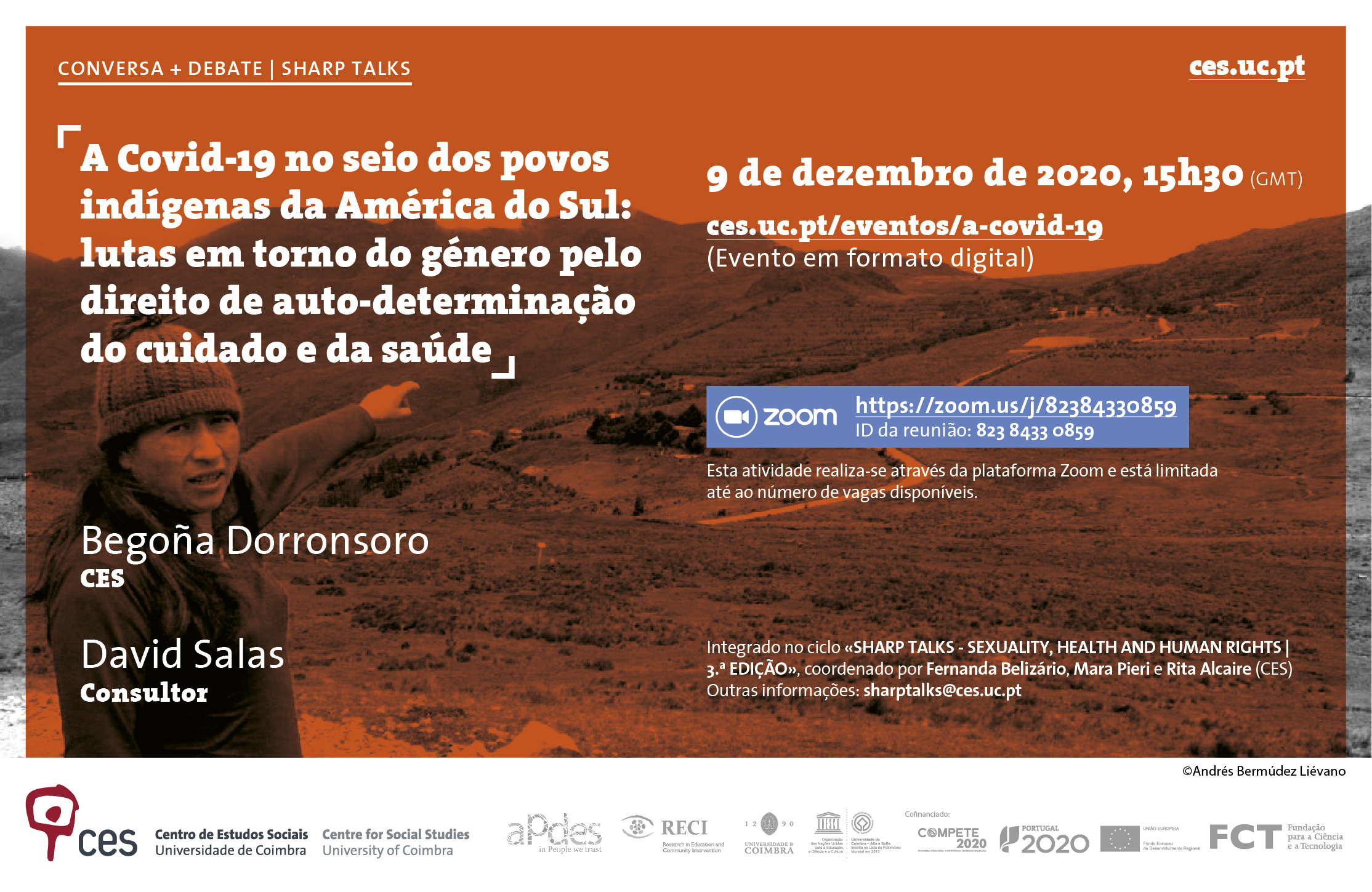TALK + DEBATE | SHARP TALKS
Covid-19 within the indigenous peoples of South America: struggles around gender for the right to self-determination of care and health
Begoña Dorronsoro
David Salas
December 9, 2020, 15h30 (GMT)
Evento em formato digital
Overview
The Covid-19 pandemic has exacerbated the vulnerability of several populations generally already unprotected. For South America's indigenous populations, Covid-19 is just one of the successive apocalypses they have been facing for several centuries. Global warming, extractivism, lack of land demarcation, and various other threats to their existence mark the lives and bodies of indigenous women and men who have accumulated diverse knowledges and practices to survive, often unacknowledged, nonetheless expropriated, by Western science.
The pandemic, in this sense, is an old new challenge. Old because it opens up structural vulnerabilities in access and protection to health, new because it imposes new logics of expropriation and death that particularly affect indigenous women.
This edition of SHARP Talks will be dedicated to a reflection on how the pandemic is affecting South American indigenous women in their sexual and reproductive health from two case studies, one from Bolivia, presented by Begoña Dorronsoro and the other from Ecuadorian Amazonia, presented by David Salas Navarrete.
Bio notes
Begoña Dorronsoro, a Basque feminist activist with over 10 years of experience working and militating in several Basque non-governmental development organisations (NGDOs) in international cooperation for the development of people, with indigenous organisations mainly from Colombia, Bolivia and Guatemala. PhD candidate in the Post-Colonialisms and Global Citizenship programme at CES, Master in Feminist Studies and Graduate in Biological Sciences (Ecology) at the University of the Basque Country U.P.V.-E.H.U. (Spanish state)
David Salas, (b, 1987) Sociologist specialised in Political Science at the Pontificia Universidad Católica del Ecuador and Master in Social and Cultural Psychiatry at the University of Coimbra. He has worked as a researcher in social sciences in several areas, such as audiovisual studies, social exclusion, health and mental health, and organisation and spatial planning. He currently works as a consultant with local authorities and border indigenous communities in the central Ecuadorian Amazon, to articulate their interests and needs in local planning.
Featured image: The women of the Yanomami and Ye'kuana peoples ©VICTOR MORIYAMA/ISA
___________________
This activity will be accessible through the Zoom platform and will be limited to number of available places:https://us02web.zoom.us/j/82384330859
We appreciate that all participants keep the microphone muted until the moment(s) of debate. The host of the session reserves the right to expel the participant who does not respect the rules of the room.
Online open access activities such as this one do not grant a declaration of participation since such document will only be provided in events that require prior registration and controlled access.


